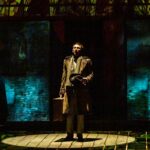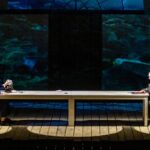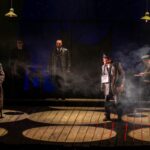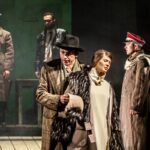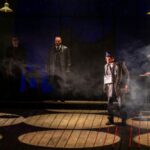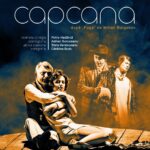8 November | 19:00 – I.L. Caragiale National Theatre Bucharest, Ion Caramitru Hall (Big Hall)
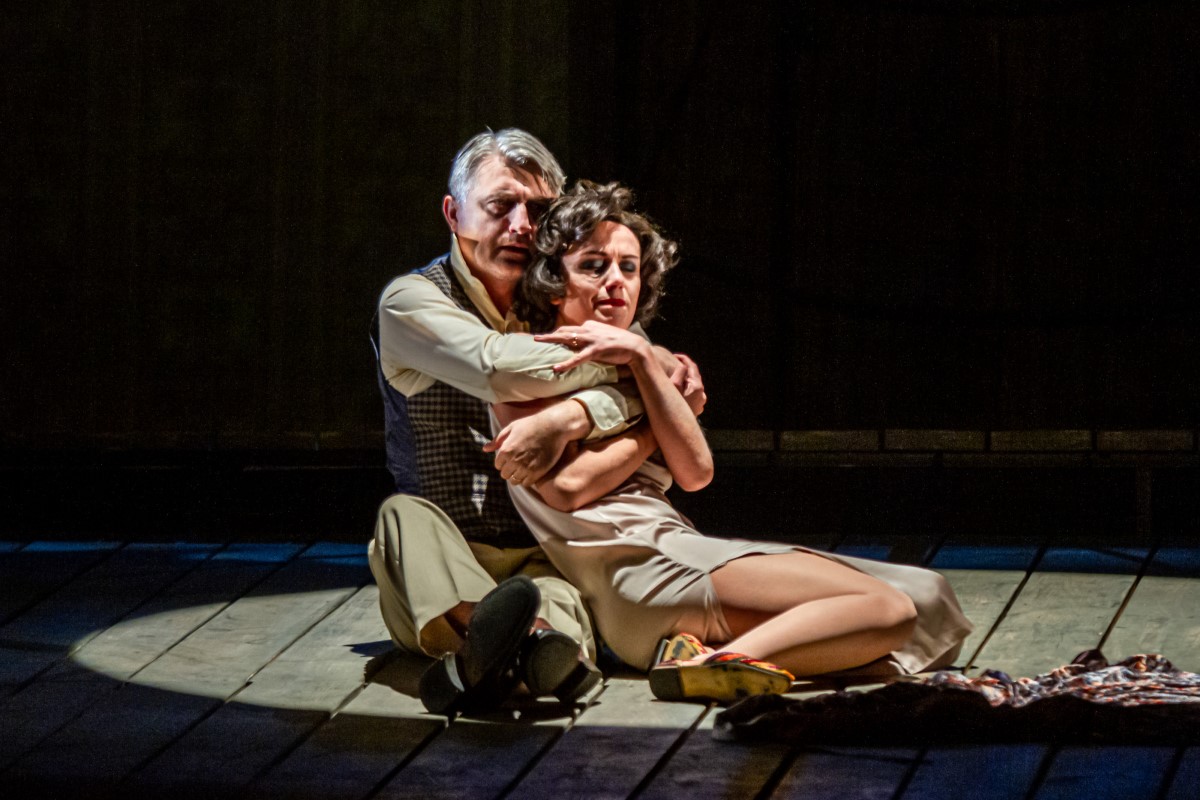
Everybody talks about love: Serafima and Golubkov fall in love among ruins and refugees, General Hludov kills in war out of love for the empire, Stalin loves the actors and the writer Bulgakov, Bulgakov and Elena love each other unconditionally….
[same_day_events_link]
By: Mihail Bulgakov
Adapted for stage: Petru Hadârcă
Cast:
Mihail Afanasievici Bulgakov: Alexandru Leancă
Elena Sergheevna Bulgakova: Diana Decuseară
Serafima Vladimirovna Korzuhina: Corina Rotaru
Serghei Pavlovici Golubkov: Alexandru Pleșca
Roman Valerianovici Hludov: Emil Gaju
Grigori Lukianovici Cearnota: Anatol Durbală
Liuska: Angela Ciobanu
Paramon Ilici Korzuhin: Ion Mocanu
The Bishop, Besprintzipnai, Tihii, Arkadiev: Iurie Focșa
Gurin, Baev, a Don Juan: Valentin Zorilă
Commander-in-chief of the army Dan Melnic
Fedia, The Cavalryman: Igor Babiac
Ania, the gorgeous dancer: Olesea Sveclă
Paisie, Antoin: Mihai Zubcu
Arturka, The Station chief, The Neighbor: Petru Oistric
Nicolaevna, The Neighbor: Anișoara Bunescu
Krapilin: Vlad Ropot
Vecina 1, The Button Bug: Rusanda Radvan
Vecina 2, The Black Perl Bug: Draga-Dumitrița Drumi
Secretara din teatru, The Witch Bug Doriana Zubcu-Marginean
Maria Konstantinovna, The Janissary Bug: Ana Tkacenko
Pavlic: Mircea Onică
Directed by: Petru Hadârcă
Set design: Adrian Suruceanu
Costumes: Stela Verebceanu
Choreography: Cătălina Budu
Light design: Denis Chitoraga
Sound design: Valentin Strișcov
Producer: Mihai Eminescu National Theatre, Chișinău
Duration: 2h 45min (with intermission)
General audience
„The idea of this performance arose in the context of the discussions about Russian culture, the responsibility of authors and the impact of their works on mentalities and social opinions, discussions generated by the war in Ukraine. I believe that it is not the prohibition but rather the reading, re-reading, and pragmatic analysis, talks and reflections on details, that can help us understand what is happening nowadays, and perhaps this way we would also understand why we have come yet again to the confrontation of two worlds, of two so models of organising life and society that are so different. It is for such a thought experiment that I have chosen the destiny and the work of Mikhail Bulgakov.
After the 1917 Revolution, Bulgakov remained in the Soviet Union. It was not his choice, but because he was sick with typhus and unconscious, hence he didn’t get to flee abroad alongside his brothers and sisters. When we got better he regretted having missed that opportunity and made efforts to adapt and integrate in the Bolshevik life. After various failed attempts to get a passport and leave. After several bans on having his works published, Bulgakov wrote to the leadership of the Soviet Union, requesting the permission to leave the country. To his amazement, he got a call from Stalin himself. Bulgakov did not find the courage to repeat his request on the phone. He let himself be seduced by Stalin’s offer to be the playwright of the Art Theatre in Moscow. This time, though, it was a conscious choice. What were the consequences for the personal destiny of the intellectual Bulgakov, how did this impact his works, and to what extent does this offer an answer to questions of our contemporary world – this performance, based on Bulgakov’s play “On The Run” aims precisely at launching a debate on these topics.
Photo credit: Ian Onică

